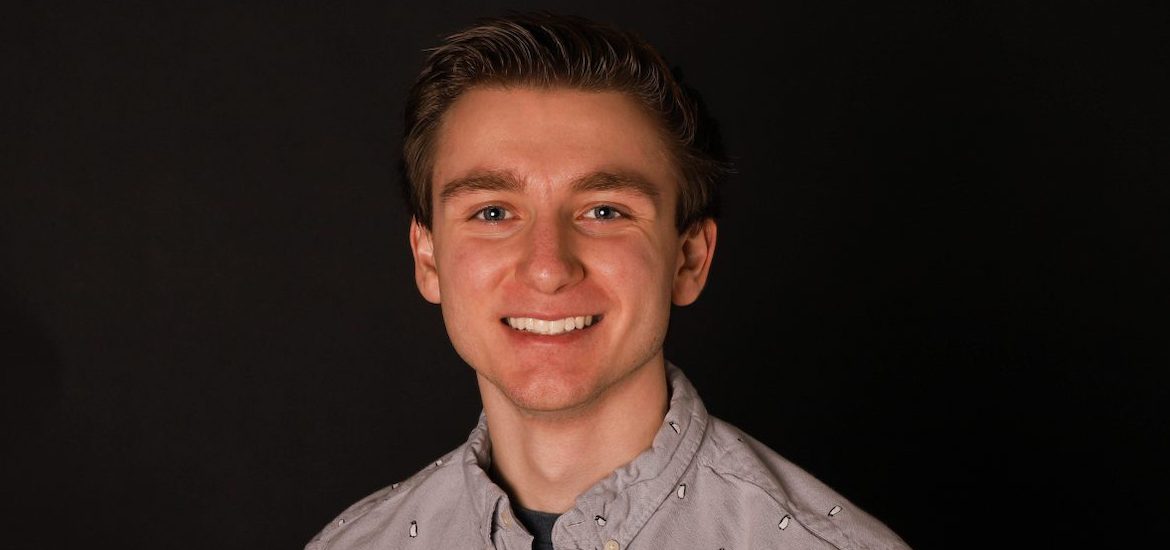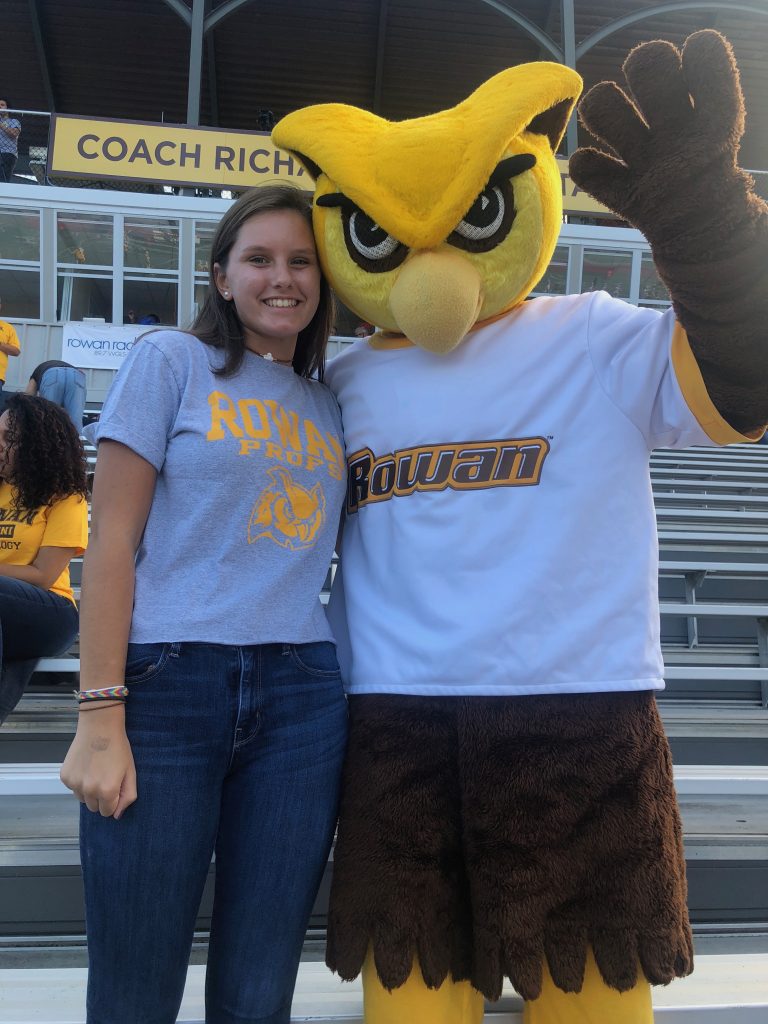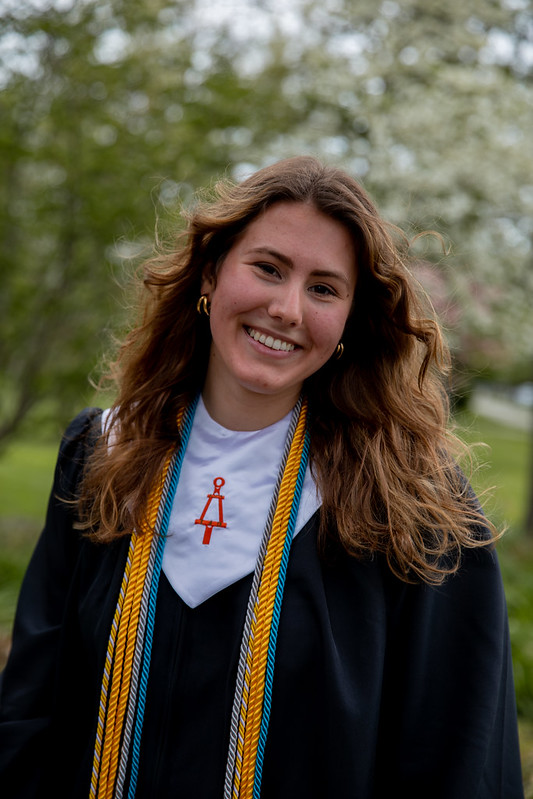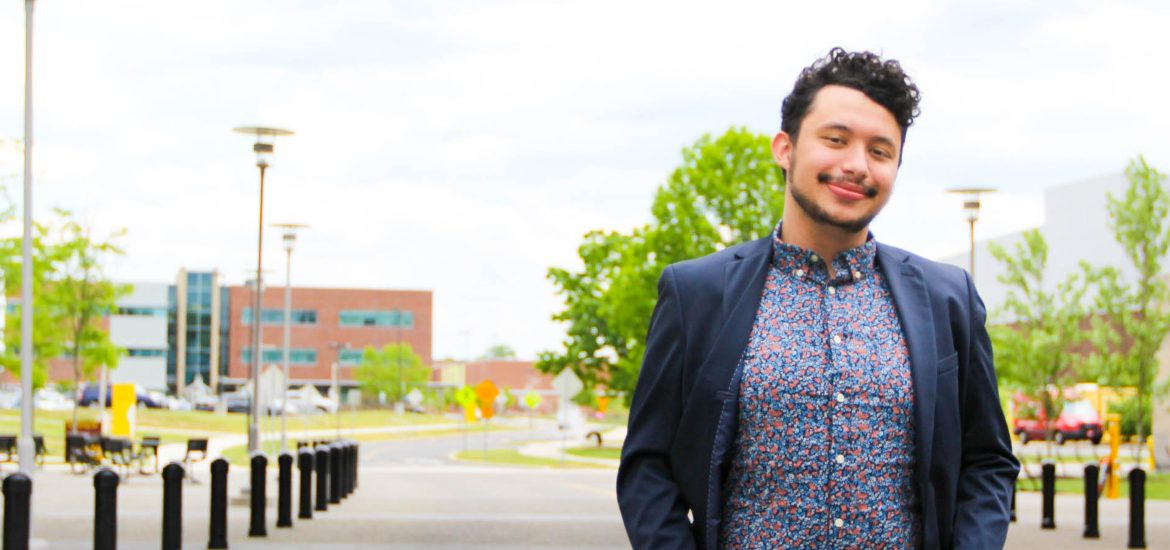Today we feature Melody Wozunk, a senior Management major from Vineland, NJ (Cumberland County). Melody is the inaugural Student Cafe Executive Officer for the new student-run Saxbys cafe at Rowan’s Rohrer College of Business.
Saxbys is a Certified B Corporation and coffee company in over 10 different locations. Saxbys’ mission statement is “Make Life Better.” With their mission statement and the up-and-coming workforce in mind, Saxbys created the Saxbys Experiential Learning Platform. Within the Experiential Learning Platform, one undergraduate student will be the student CEO of the campus cafe for a semester.
Melody Wozunk is the new Student CEO for the Rowan University Saxbys campus cafe located in the Rohrer College of Business. Melody goes into detail about the Experiential Learning Platform, discusses how she found out about this opportunity, and shares future plans.

I understand that Saxbys has partnered with Rowan University in an all new student-run café starting this fall, and you are the new SCEO. How did you get involved?
I was in a career planning and development class back in Spring 2021, and my professor encouraged me to attend an online career fair. I went ahead and went on and scrolled through the employer list. This is when I came across Saxbys, a company I was vaguely familiar with. Originally, I was just looking for a summer internship. It just so happened that this opportunity turned into something so much greater and way beyond just that. I am so grateful that I logged onto the career fair that day because I was instantly informed of this Student CEO position and it has been a dream come true.
What are your feelings as the first Student CEO of Rowan’s Saxbys Experiential Learning Platform?

I feel a mixture of emotions when I think about this opportunity. I feel extremely excited, blessed, honored, challenged, and simply just so happy to be here and part of this experience of the Experiential Learning Platform. I know I am going to learn so much and will be able to utilize the skills I learn in my future endeavors.
From your understanding, what are your roles and responsibilities as the SCEO of the campus cafe?
Saxbys breaks it down into what they call the three pillars. The pillars include financial management, community leadership and team development. I have a lot of different responsibilities as the SCEO, but they all fall into the three pillars. For example, for financial management, I will constantly be tracking costs of goods sold in the cafe and evaluating revenue. For team development, I will be working a lot on the floor as a “team lead,” which is viewed as a management position. For community leadership, I will focus on getting Rowan involved and interested in this new cafe.
What are your professional plans post graduation? Do you plan on working for a company like Saxbys long term?
It is hard to say what the future holds for me. I am still going to be a student and I obviously will not be going into the full-blown workforce until after I graduate; however, I would be honored to work for Saxbys long term. I have loved working with Saxbys so far, and just their mission statement alone of “Make Life Better” truly resonates with me.

What personal goals do you have for working as the SCEO for the Rowan Saxbys campus cafe?
I really want to provide an awesome experience for guests that are coming in: the Rowan community. Our goal at Saxbys, as stated previously, is to “Make Life Better.” However, I can accomplish that through my team, for the community is really important to me. I also am looking forward to developing my team. Starting up as a brand new cafe is an exciting experience; however, it can also be a little intimidating. Therefore, a personal goal for me is to spread confidence, create a fun working environment and a motivating atmosphere.
Personally, I am looking to improve my time management skills, professional communication skills, and my overall drive and focus as a professional who is practically starting their first full-time job.
The grand opening of Rowan’s Saxbys campus cafe was held on Sept. 21. The cafe is looking for outgoing, detail-oriented, disciplined and passionate workers.
To find out more information on the Saxbys Experiential Learning Platform, you can click the website linked below. For information on how to apply and join the team you can click the following;
https://www.saxbyscoffee.com/how-to-apply/

Learn more about the Saxby’s SCEO program here:
Like what you see?
Story By:
Natalie DePersia, junior public relations major
Photos courtesy of:
Saxbys
Related posts:
Freshmen, Don’t Freak! It’s Easy to Eat


















































































































































































































 .
.





























